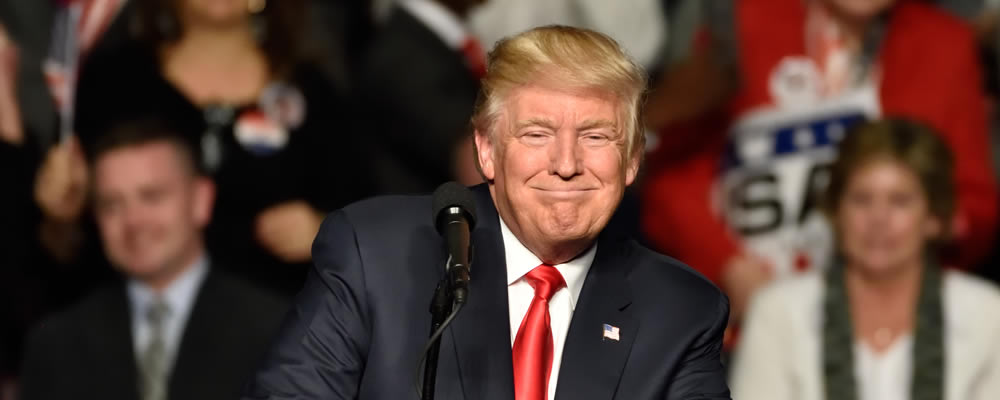- Euro US Dollar Slides to 1.1684 – US Dollar Euro Climbs to 0.8555
- Catalonia Continues Bid for Independence – Euro Encumbered
- US Trade Deficit Shrinks, Tax Reform Progresses – US Dollar Bolstered
The Euro US Dollar exchange rate tumbled this morning in the wake of yesterday’s positive US data releases and the escalating situation in Catalonia.
US Trade Deficit Shrinks, Republicans Move on Tax Reform – USD Climbs
Demand for the ‘Greenback’ soared in the early hours of Friday morning following Thursday’s news that the US trade deficit had shrunk from USD 43.6 billion in July to USD 42.4 billion in August, compared to the market forecast of a USD 42.7 billion gap.
This is the smallest trade deficit recorded by the US since September and primarily resulted from a rise in US exports, which were, in turn, brought about by a strengthening of the global economy and a weaker US Dollar.
Chief Economist at Deutsche Asset Management, Josh Feinman shared this sentiment, stating: ‘Global growth is looking better. That does create a little bit of a tailwind for exports’, he did, however also caution that the impact of storms Harvey and Irma could be distorting the data to a certain degree; with people staying home from work for a significant amount of time.
The news isn’t entirely positive, however, as despite narrowing in August the overall trade deficit continues to widen on an annual basis, having risen 8.8% in the first eight months from the comparable period last year.
In other news for the US Dollar Congressional Republicans have hastened to move for an overhaul of the US tax code, despite warnings from Federal Reserve Officials that it might result in inflation and unmanageable federal debt.
In one of the first steps forward the House of Representatives approved a 2018 fiscal spending blueprint that contains the legislative tool that will, in theory, enable Republicans to pass the tax bill with a simple majority vote in the Senate.
US President Donald Trump’s tax reform will feature a package of massive cuts for corporations and individuals before January as well as a vast simplification of the tax brackets (down from seven to three) in an attempt to boost US economic growth.
Because of this, investors have long regarded Trump’s tax reform as one of the Republican’s biggest selling points, and with news that it could be picking up speed demand for the ‘Greenback’ has promptly returned.
Banks and Businesses Prepare to Leave Catalonia in Event of Independence – EUR Struggles
The Catalan government is currently attempting to prevent the haemorrhage of businesses from the region that will likely result if the unilateral declaration of independence goes ahead.
Catalonia’s largest banks are weighing up the decision to pick-up and move to avoid a ‘run on the bank’ in the event of an independence declaration, with bank Banco Sabadell confirming late on Thursday that it will be moving its HQ to Alicante.
Because of this chaos the markets are currently keeping a keen eye on events, with Catalonia leader Carles Puigdemont having previously claimed that he will declare their independence in ‘a matter of days’.
The Euro has struggled as a result, with markets worried that the situation may well descend into civil war if Madrid issues Article 155 to take control of the autonomous region.
EUR USD Outlook: Negative on Bank Flight from Catalonia
The outlook for EUR USD has grown increasingly negative, (despite Friday’s German factory order figures proving extremely positive).
The growing instability within Spain reflects badly on the Eurozone as a whole, especially with banks beginning to take flight from Catalonia.
Beyond this, the European People’s Party has since issued somewhat of an ultimatum to the people of Catalonia, by asserting that leaving Spain means leaving the EU.
A spokesman stated:
‘Someone needs to tell the Catalan people the truth. If you contest the law to abandon Spain you also need to know that you abandon the EU’.
Should the situation continue to escalate then a ‘Catalexit’ may well be on the cards – an event that would shake the solidarity of the bloc and likely drive the single currency down.



